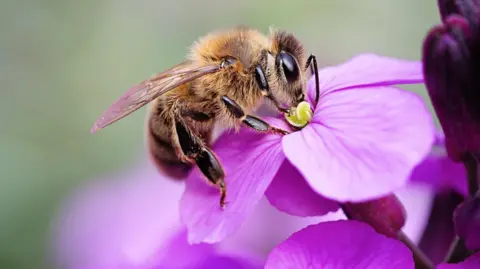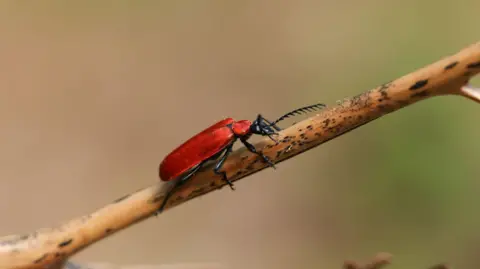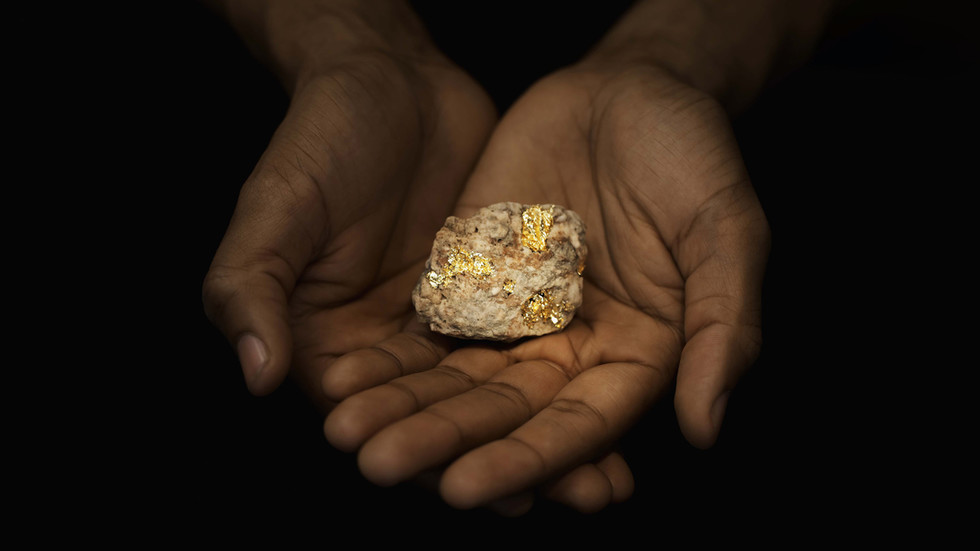Louise Cullen
BBC News NI Environment Correspondent

 BBC
BBC
Hannah Fullerton from Buglife in Northern Ireland says insects are crucial to our wellbeing
The decline of insects in Northern Ireland is "worrying", a charity has warned.
Buglife carries out a Bugs Matter "splat survey" every year, where people count the number of insects on a car licence plate after a journey and record the figure on an app.
The latest results in Northern Ireland show the abundance of flying insects in the countryside has fallen by 55% since 2021, but the rate of decline has slowed.
And across all the UK nations, the number of insect splats has fallen by 63%.
'If you like to eat, then you like our insects'
Hannah Fullerton from Buglife in Northern Ireland said insects are crucial to our wellbeing.
"I like to remind people that, if you like to eat, then you like our insects.
"They also do other handy things, like they'll break down wood or leaves lying around and they help feed our mammals."
And while we might be enjoying the unseasonably warm weather, she said it can pose a risk to our insect populations.
"Whenever the nice sunny weather comes out, our insects come out and think, great, it's time to get to work," said Hannah.
"And then suddenly, it begins to rain, the temperature starts to drop and that can have devastating effects for our invertebrates because they've come out of hibernation.
"This is resulting from climate change as well, which is a big issue that we're suffering from as well as herbicides and pesticides over-uses."

 Getty Images
Getty Images
Planting wildflowers in our gardens can help support our vulnerable insects, like solitary bees.
The annual five-month long survey is led by Kent Wildlife Trust.
"This huge decrease in insect splats over such a short time is really alarming," said Dr Lawrence Ball from the Trust.
"It's most likely that we are seeing the compounding effects of both a background rate of decline as well as a short-term cycle of decline, perhaps linked to the extreme climate in recent years.
"Hopefully, splats up 6% on last year indicates a slowing decline.
"A larger sample of journeys from Northern Ireland will help to reveal the overall trend."
Help let nature heal itself

 Getty Images
Getty Images
Black-Headed Cardinal Beetle can thrive in wood lying in our gardens
Extending the survey into the Republic of Ireland is "a crucial next step", said Rebecca Lewis from Buglife NI.
"To gather data on the health of insect populations on an all-Ireland basis will provide essential data to support future nature restoration efforts."
Planting wildflowers, letting weeds grow and leaving some wood or small piles of stones in our gardens can help support our vulnerable insects, like solitary bees, said Hannah.
"If we get nature back it'll help look after itself."

 3 hours ago
6
3 hours ago
6









